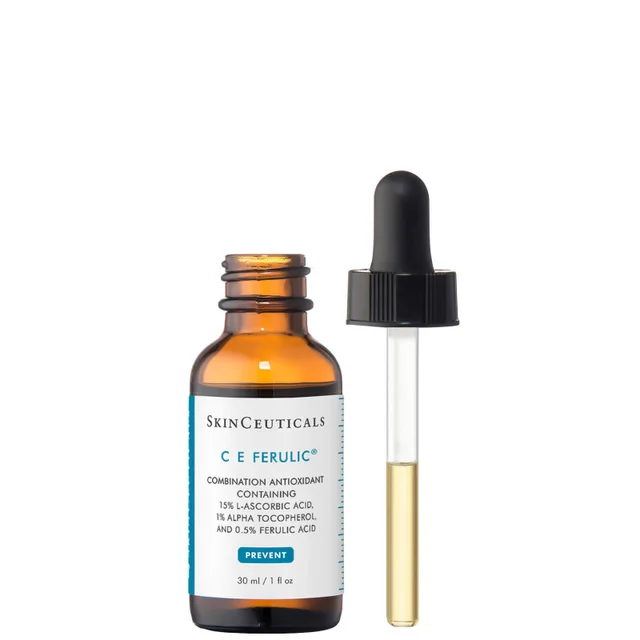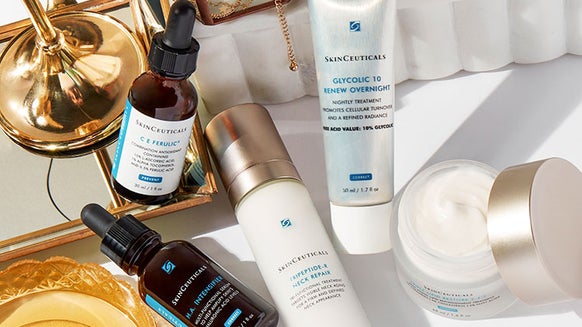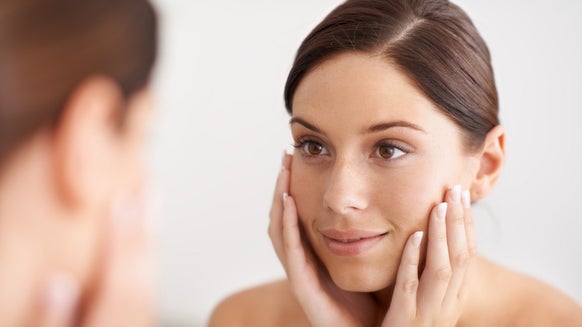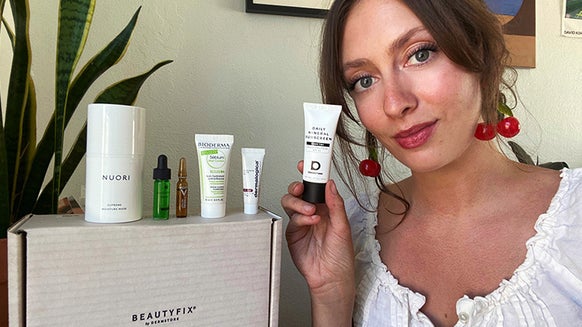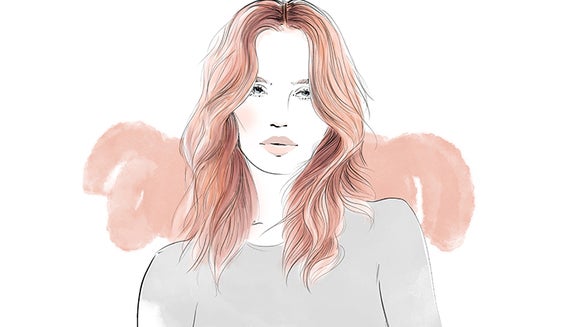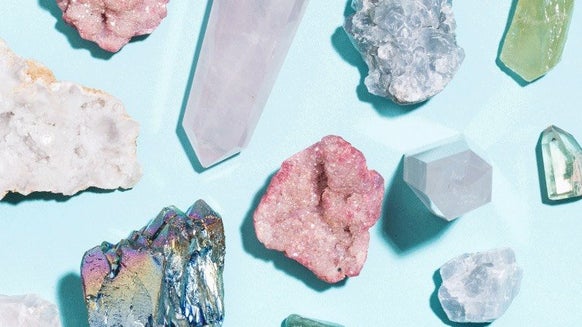The Normal Aging Process: What to Expect and When
Some people wish they could stay young and youthful-looking forever, but with time comes inevitable changes in our bodies. Both your body and your mind change as you age, and although it can feel strange or even unnerving to see yourself go through a metamorphosis, it doesn’t have to be a process you fear. The cultural conversation around aging (and particularly of aging in women) has shifted dramatically in the last few years, with many women now embracing and celebrating the aging process. On a more personal level, becoming aware of what to expect as you age may make growing older seem a little bit easier, and so we’ve consulted with various medical professionals to help explain what you can expect when you age, from your skin to your body and your mind.
1. Skin
The skin is often where people first start to notice signs of aging, particularly on the face. There are many factors that will influence when a person’s skin begins to change with age, the main ones being genetics and lifestyle.
Why do wrinkles appear?
Generally, fine lines and wrinkles happen because the skin loses collagen, elastin, and its ability to hold as much moisture as it ages. This loss of elasticity leads it to become more susceptible to gravity—causing wrinkles, sags, bags, folds, and lines. Environmental factors such as the sun also speed up the effects of aging, as does repetitive muscle movement—such as squinting when you don’t wear sunglasses or frowning when concentrating. Smoking also accelerates the development of sagging skin and wrinkles or makes existing ones deeper. Oftentimes, fine lines and wrinkles show up asymmetrically because of sleeping more on one side.
How does your skin change as you get older?
Your skin goes through many changes throughout the decades, namely a loss in elasticity as well as diminished fat. In your 20s and 30s, you’ll start to notice that your skin is no longer as resilient. “After a night of partying, your skin won’t look as vibrant and youthful in the morning,” says plastic surgeon Anthony Youn, MD, FACS. Fine lines and sunspots also begin to develop.
In your 40s, the skin begins to feel looser. “Although most people in their 40s don’t have drooping skin, it starts to lose elasticity and tightness,” says Youn. In your 50s, the skin starts to sag. “Virtually everyone has some loose, hanging skin of their neck by their mid-50s,” he says. “Eyelids and eyebrows also start to droop.” This continues on as you get into your 60s, 70s, and beyond, with the skin thinning and underlying veins becoming more visible.
Related Reading: The Best Anti-Aging Serums for Your Skin Concerns
How does your skin type affect how you age?
The characteristics of your skin can also help you determine when lines might appear. For example, a 2016 study published in the Journal of Clinical and Aesthetic Dermatology found that pale skin tends to wrinkle and show lines sooner than black skin because black skin “maintains its structural integrity and youthful appearance longer than those of lighter skin types”. Darker skin generally resists photo-aging more than pale skin, so sun exposure doesn’t hasten the development of wrinkles. But people with dark skin show other signs of facial aging such as jowl formation, pigmentation, and age growths known as seborrheic keratosis.
Related Reading: How to Prevent Aging Skin in Your 20s, 30s, 40s and Beyond
2. Hair
“Graying hair is the most obvious sign of aging, and this occurs because we make less melanin, the part of the hair follicle responsible for hair color,” says Dr. Christopher Calapai, DO. “Hair thinning and a lack of shine also come with age,” he says. Since the hair is less thick and the hair follicles eventually stop producing new hairs, hair loss is also common.
Finding gray hairs is usually the first sign of aging that people spot, and while it can happen from as early as your 20s, it most commonly begins in your 30s. Several scientific studies, such as this one published in 2020 on pubmed.org have concluded that environmental factors such as stress can accelerate hair turning gray beyond natural aging. This is because stress causes the release of a chemical called norepinephrine into hair follicles, which causes them to turn into pigment cells and leave the hair follicles. Without stem cells left to create new pigment cells, new hair growth from the follicle turns gray or white.
Related Reading: Is There a Permanent Solution for Gray Hair?
3. Nails
As you age, nails tend to be more dull, brittle, and grow slower. “Some can develop longitudinal rushing, which are vertical ridges in the nail,” says dermatologist Dr. Margarita Lolis. You might experience discoloration, abnormal growth, and frequent breakage. You might also find that your hands tend to be drier. “The more we have our hands in water, the drier they become,” says Calapai. For this reason, we’d recommend always wearing protective gloves when doing cleaning tasks.
Related Reading: Discolorations, Cracks or Lines on Nails: What Do They Mean?
4. Mind
“As we age we often concern ourselves with our appearance, but our minds age too,” says Calapai. “According to psychologists, the mental lifestyle, chronic disease and mental flexibility all impact how our mind functions as we age.” Unfortunately, we experience more cognitive decline, poorer quality sleep, and worsened memory as we get older. However, it’s not all that bad: There are also some benefits that come with age. Research shows that middle-aged brains are better at managing emotions, and that your brain responds less to negative things. You might also find that you have better spatial orientation skills and inductive reasoning. Your memory may not feel as strong, but you might find it easier to navigate through everyday troubles.
Related Reading: Why Meditation Should Be Part of Your Anti-Aging Regimen
5. Body
Someone at age 40 might not have the same natural energy as someone at age 20. “Even healthy people notice aches, pains, and - even for some - a drop in stamina and coordination,” says Calapai. “People may notice they need to hold onto a railing when climbing stairs or getting in and out of the car. Putting on clothes or lifting things may seem to become more of a challenge.”
Related Reading: Why Am I So Tired All the Time?
6. Metabolism
Our metabolism slows down after age 25, which is when we stop growing bone, and every decade our metabolism slows at least two percent. “This is why it's common for a slender person to see their weight increase by 10–12 pounds every decade,” says Calapai. At first, this change is slow and steady, which is why so many people don’t notice it happening when they’re younger. But around 50, this decline begins to accelerate.
7. Hormones
Sex hormones, primarily estrogen, progesterone, and testosterone, typically decline in the late 40s to early 50s. “When these hormones decline, women experience menopausal symptoms, like hot flashes, thinning skin, and vaginal dryness,” says functional medicine naturopathic doctor Jolene Brighten. Another hormone called DHEA also begins to decline and continues to drop each year. “DHEA is considered an anti-aging hormone because it diminishes wrinkles, increases energy, enhances memory, reduces body fat, and improves libido,” she says.
Is It Possible to Slow the Aging Process Down?
Now that you know what to expect as you age, you might be wondering if there are ways in which you can help slow signs of aging down. “It boils down to sleeping well, exercising, eating a healthy diet, and staying active,” says Lolis. Exercise can, of course, help with changes in the body, but it can also prevent cognitive decline in the mind as well as help with your skin’s appearance.
It’s also particularly important to steer clear of processed foods, salty foods, and sweet foods, not only to lessen your chance of diseases like diabetes and obesity but to help improve your skin, hair, and nails. “Exercising and a diet rich in fruits, vegetables and fish also helps regulate the metabolism,” says Calapai.
Reducing stress is also important, so activities like meditation can help keep your cortisol levels down, which can prevent aging all around.
Are There Factors That Can Speed the Aging Process Up?
You can also take action to make sure you’re avoiding habits that can make you age more quickly. “The more stressed we are the more we speed up aging and trigger hormonal imbalances,” says Calapai. Sun exposure can thin the skin, staying inactive can hurt your mental cognition and cause issues like osteoporosis, and smoking not only increases your risk of developing lung cancer, but it can cause premature and deep-set wrinkles as well as other skin issues.
Aging is an inevitable part of life. But for those who wish to prevent or slow down signs of it, making sure you’re adopting a healthy lifestyle is key.

From the latest hair and makeup trends to the best solutions for your skin issues, we've got all your beauty concerns covered!
